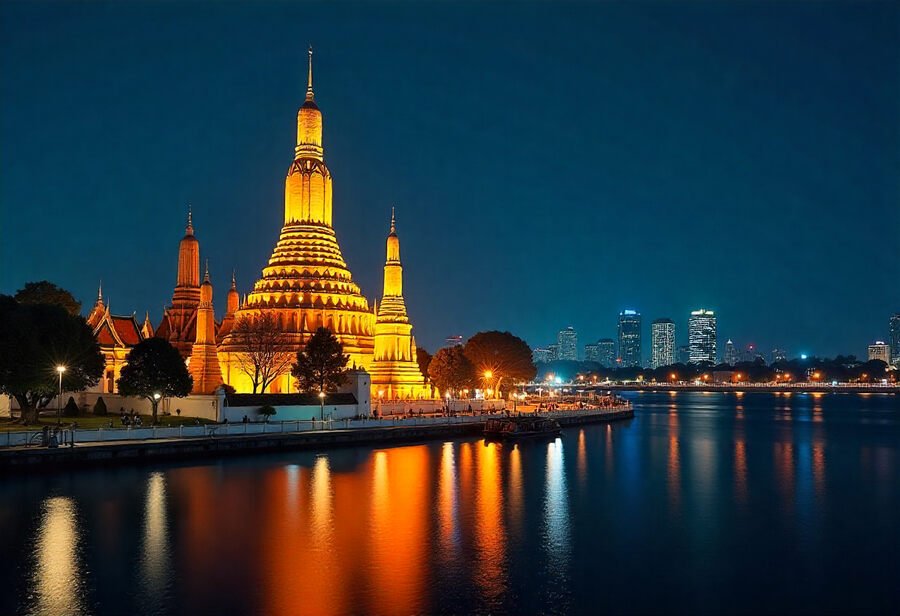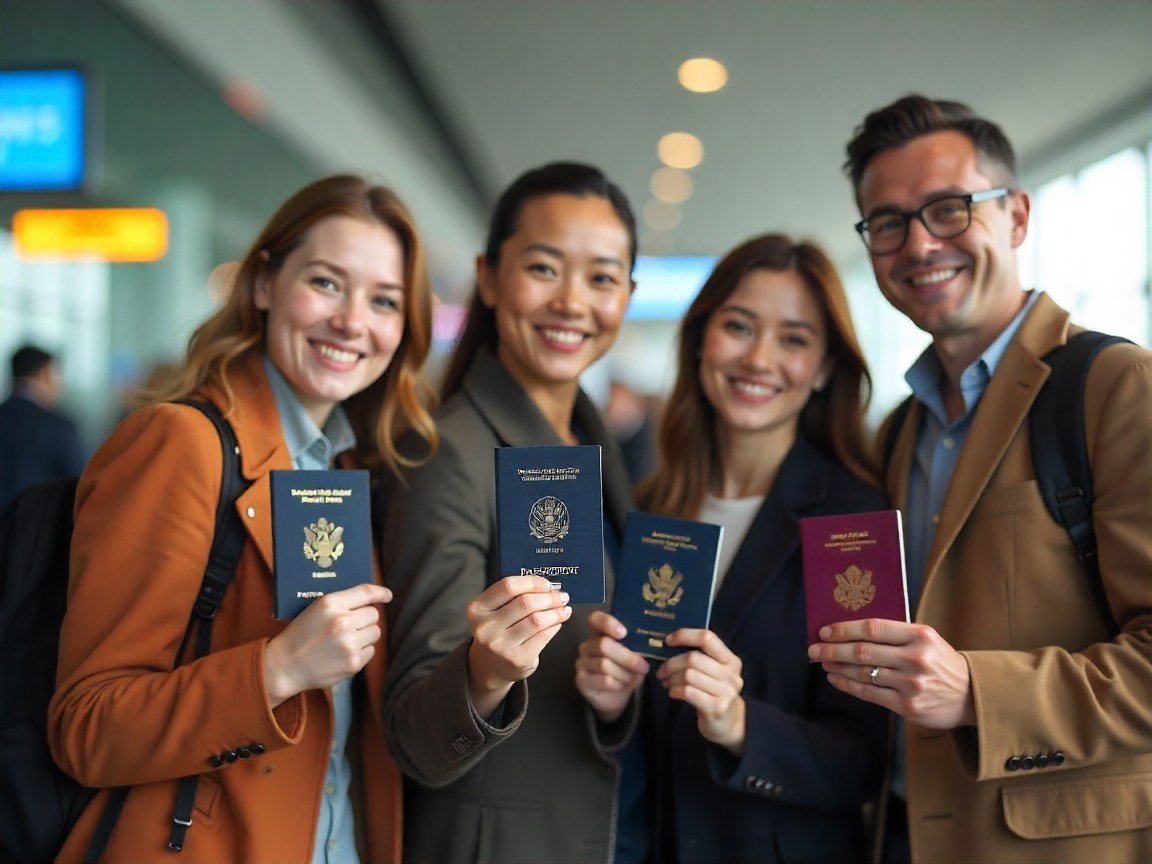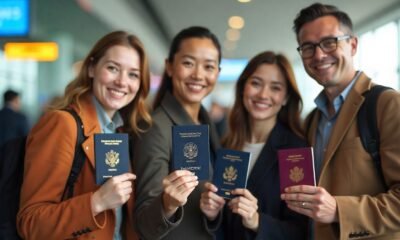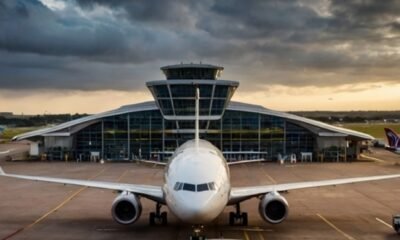Asia Travel Pulse
Bangkok And Kuala Lumpur Ranked Far Below Hanoi As Vietnam’s Capital Takes Center Stage Among The World’s Best Cities For Cultural Experiences And Authentic Travel

Wednesday, August 6, 2025
Author: TTW News Desk
Bangkok and Kuala Lumpur have slipped far down the global rankings in 2025, while Hanoi has surged ahead to claim a coveted position among the world’s top cities for cultural depth and authentic travel. In a recent international survey of 20,000 global travelers, Vietnam’s capital stood out for its unique blend of tradition and modernity, outperforming its regional rivals in both visitor appeal and cultural value. With its preserved Old Quarter, East-West architecture, vibrant food scene, and rapid tourism growth, Hanoi captured international admiration as a destination that offers more than just sightseeing — it delivers a living, breathing experience of history, identity, and local life that today’s travelers increasingly seek.
Hanoi has risen in global recognition, securing the 31st position in a newly released list of the world’s top cities for travelers. This milestone highlights the Vietnamese capital’s expanding international appeal, fueled by its deep cultural roots, ongoing urban development, and increasing interest from global visitors. By outperforming other major regional cities such as Bangkok, which ranked 40th, and Kuala Lumpur, which came in at 68th, Hanoi has firmly established itself as one of Asia’s leading destinations in 2025.
The rankings come from a large-scale global survey organized by a major U.K.-based publication. This annual survey invites tens of thousands of global travelers to vote for the cities they believe offer the best travel experiences. The 2025 edition drew insights from 20,000 readers who weighed in on cities around the world based on categories like cultural vibrancy, historical value, scenic appeal, and travel experience.
Hanoi emerged as a clear favorite among Asian cities, beating out regional rivals that have traditionally dominated international tourism. The capital’s unique fusion of traditional Vietnamese culture with French colonial heritage and modern city life has helped set it apart from other destinations in the region. Its historic Old Quarter, vibrant street food scene, centuries-old temples, and lively arts districts offer visitors a blend of authenticity and energy that continues to resonate on the global stage.
Hanoi ranked 31st globally and secured the 10th spot among cities outside of Europe and the Americas, marking a significant milestone in regional standings. This strong performance placed the Vietnamese capital ahead of numerous destinations across the Asia-Pacific, Middle East, and Africa. Survey participants highlighted Hanoi’s distinctive combination of historical depth and modern energy, often pointing to its iconic architecture, lively street markets, and evolving urban landscape as key factors driving its growing popularity.
Hanoi’s growing presence in the global spotlight is reinforced by a remarkable spike in international tourism this year. In the first half of 2025, the city welcomed nearly 3.7 million visitors from abroad — marking a substantial 22% increase over the same period in 2024. This surge highlights Hanoi’s rising appeal among travelers from Europe, North America, and various parts of Asia, many of whom are now placing the Vietnamese capital high on their must-visit lists.
The city’s tourism revival has also been supported by local investment in infrastructure, heritage conservation, and public services aimed at enhancing visitor experiences. New international flight routes, upgraded airport facilities, and tourism-friendly policies have contributed to Hanoi’s appeal as a convenient and welcoming destination. Additionally, the city has made efforts to preserve its cultural landmarks while supporting modern developments, resulting in a more balanced and immersive experience for travelers.
While Hanoi’s ranking is impressive, it also reflects Vietnam’s broader momentum as a growing tourism power in Southeast Asia. Further south, Ho Chi Minh City — Vietnam’s largest and most commercially vibrant metropolis — also made it onto the global list but came in at a lower rank of 77th. Despite its cosmopolitan atmosphere and economic strength, Ho Chi Minh City has seen slower growth in international tourism engagement compared to the capital, possibly due to a different mix of visitor expectations and cultural offerings.
The 2025 list of the world’s top ten cities showcases an exciting lineup of destinations that combine cultural richness, scenic beauty, and travel convenience. Leading the pack is Cape Town, South Africa, a city known for its dramatic ocean views, mountainous backdrop, and vibrant mix of cultures. In second place sits Seville, where historic palaces and a deep-rooted flamenco tradition continue to charm visitors year after year.
Sydney takes third with its iconic harbor, beaches, and laid-back lifestyle. Japan shines with a double entry — Tokyo and Kyoto — both celebrated for their blend of ancient traditions and futuristic innovation. Copenhagen claims the sixth position, offering travelers a taste of Nordic minimalism, modern design, and eco-conscious city life.
Next on the list is Vancouver, where stunning coastal landscapes meet sleek urban living. Venice, still as magical as ever, holds its place with winding canals, gothic facades, and centuries-old ambiance. Porto follows with cobbled streets, historic riverside views, and a rich legacy rooted in wine and craftsmanship. Rounding out the top ten is Singapore, a sleek, cosmopolitan city that harmonizes high-tech marvels with deep multicultural roots.
What sets all these cities apart is their ability to immerse travelers in an atmosphere that feels authentic and unforgettable. Each one offers a unique sense of place, shaped by heritage, community, and the seamless blending of past and present.
For Vietnam, Hanoi’s rise in the rankings represents a milestone achievement. After years of quietly building its reputation as a must-visit destination, the capital has now joined a prestigious list of world-class cities recognized for their travel appeal. The recognition reflects years of consistent efforts to modernize the city’s infrastructure, preserve its historical core, and market itself to global audiences through travel fairs, media outreach, and cultural exchange programs.
Hanoi has surged ahead of Bangkok and Kuala Lumpur in the 2025 global city rankings thanks to its rich cultural heritage, authentic local experiences, and fast-rising appeal among international travelers seeking deeper, more meaningful journeys.
As international tourism continues to rebound in the post-pandemic era, destinations like Hanoi are beginning to benefit from a shift in traveler preferences. Many tourists today seek meaningful, authentic experiences that go beyond luxury resorts and crowded attractions. Hanoi offers exactly that — a living, breathing city filled with stories, traditions, and contrasts. From sipping egg coffee on a narrow sidewalk to walking through ancient temples or witnessing the rhythmic chaos of motorbikes in the Old Quarter, the city delivers a journey unlike any other.
Hanoi’s rise in the global city rankings is expected to spark even more international curiosity about Vietnam as a whole. With stronger air connections, strategic tourism partnerships, and continued government backing, the capital is on track to welcome a more diverse wave of visitors in the near future — including independent travelers, culture seekers, digital entrepreneurs, and international business interests. This momentum also sets the stage for other destinations across Vietnam to shine, as the country continues to spotlight its rich cultural tapestry, regional variety, and stunning natural landscapes on the global travel map.
In a region filled with travel heavyweights, Hanoi’s rise speaks volumes about what the city offers — and how far it has come. As more international travelers look eastward in search of new, meaningful journeys, Vietnam’s capital stands ready to deliver something truly unforgettable.
Asia Travel Pulse
Thailand Sets the Stage for a Tourism and Aviation Surge with VietJet’s Massive Hiring Drive and New International Routes Across Asia

Published on
August 7, 2025 |
By: TTW News Desk
Thailand is rapidly advancing its position as a regional aviation powerhouse, backed by VietJet Thailand’s aggressive expansion strategy in 2025. As Southeast Asia’s most popular travel destination rebounds from the pandemic and strengthens its infrastructure, VietJet is stepping in to meet soaring travel demand by opening over 5,000 new positions across aviation roles—ranging from pilots and engineers to cabin crew and ground staff. At the same time, the airline is rolling out a slate of new direct routes from Bangkok to major Asian destinations including Tokyo, Osaka, Seoul, Kolkata, and Ahmedabad. This dual strategy not only supports Thailand’s long-term goal to become the leading air travel hub in the region, but also fuels economic growth, boosts employment, and enhances cross-border connectivity just as international tourism to the country surges once again.
Thailand Set to Welcome Over 5,000 New Aviation Jobs as VietJet Expands Regional Operations Across Asia
Thailand’s aviation sector is preparing for a significant hiring surge as VietJet Thailand, the local arm of Vietnam’s leading budget airline, gears up to recruit more than 5,000 new employees in 2025. The expansion drive is directly tied to the airline’s ambitious plans to grow its presence in Southeast Asia’s most visited destination, positioning Thailand as a regional aviation hub.
The announcement signals a strategic leap by VietJet to strengthen its Thai operations with a wave of new flight routes to high-demand cities across Asia. The airline will roll out several new direct flights to destinations in Japan, South Korea, and India by the end of this year, seeking to capture a larger share of the booming regional travel market.
In a statement released late Wednesday, VietJet confirmed that it will begin offering new international routes from Bangkok to Seoul, Osaka, Tokyo, Kolkata, and Ahmedabad in the coming months. These routes mark a crucial expansion of the airline’s network beyond its existing short-haul offerings, signaling a broader push into long-haul, high-traffic routes linking Thailand with the rest of Asia.
Thailand’s Aviation Ambitions Receive Major Boost
VietJet’s move aligns closely with Thailand’s national agenda to become Southeast Asia’s premier air travel gateway. As the third-largest economy in the region, Thailand is aggressively upgrading its airport infrastructure in a bid to draw more airlines and travelers. Airport expansion projects in key hubs such as Suvarnabhumi Airport in Bangkok, along with upgrades at Phuket and Chiang Mai international airports, are already underway.
VietJet is one of several regional carriers responding to this opportunity. Thai Airways International Pcl and Asia Aviation Pcl, the operator of Thai AirAsia, have also added new international routes to their schedules, underscoring a wider industry trend of ramping up regional connectivity to meet surging passenger demand.
Massive Hiring Campaign Underway
To support its new flight offerings, VietJet Thailand has initiated a large-scale recruitment campaign across multiple departments. The company is hiring pilots, cabin crew, engineers, technicians, and ground support staff to meet operational requirements for the newly announced routes. While VietJet did not disclose the current size of its workforce, the hiring target of 5,000 new employees marks one of the airline’s most ambitious staffing efforts to date.
The decision to boost hiring in Thailand also reflects renewed confidence in the post-pandemic recovery of regional travel. As tourism demand rebounds, airlines are finding it essential to increase capacity, add new connections, and rebuild staffing levels that were significantly reduced during the global health crisis.
Financial Turnaround Fuels Expansion
The expansion into new routes and workforce growth comes on the heels of an impressive financial rebound by VietJet Thailand. According to data from Thailand’s Ministry of Commerce, the airline posted a net profit of 64 million baht (approximately \$1.98 million USD) in 2024. This represents a significant reversal from the 3.6 billion baht loss the airline recorded in 2023.
Revenues also saw a substantial leap, rising by 45% year-on-year to reach 19 billion baht. This strong financial performance appears to have paved the way for the airline’s current expansion efforts and strategic investment in infrastructure and personnel.
New Routes to Connect Thailand with Key Asian Cities
The rollout of VietJet’s new regional routes begins this fall and will be phased in through the end of the year:
Nonstop Flight from Bangkok to Seoul Set to Launch on October 1 as Part of VietJet’s Asia Expansion
- Bangkok to Osaka (Japan) – Launching December 1
- Bangkok to Tokyo Narita (Japan) – Beginning December 15
- Bangkok to Kolkata (India) – Starting November 16
Nonstop Bangkok to Ahmedabad Flight Set to Launch December 4 with VietJet Thailand
These additions are expected to not only increase passenger volume through Thailand but also boost economic ties with key tourism and business markets across Asia.
Legal Disputes Resolved
The airline’s latest strategic moves also follow a legal resolution in the UK. A London judge recently denied a motion by investment firm FitzWalter Capital Ltd. to freeze VietJet’s global assets in a dispute over unpaid fees. The decision removes a potential hurdle that could have impacted VietJet’s overseas operations and expansion plans.
Thailand is stepping up as a regional aviation leader with VietJet launching over 5,000 new jobs and expanding nonstop flights to major Asian cities, supporting the nation’s push to become Southeast Asia’s premier air hub.
Outlook Bright for Thailand’s Aviation Sector
With strong financial backing, growing regional demand, and government support for infrastructure upgrades, Thailand’s aviation industry is entering a new phase of accelerated growth. VietJet Thailand’s expansion, both in terms of routes and workforce, places it at the center of this transformation, signaling a competitive push to redefine regional air travel through Thailand as a central hub.
Asia Travel Pulse
China, Malaysia, India, Russia, and South Korea Lead the Way as Bangkok Tops Global Travel Lists for Summer 2025

Thursday, August 7, 2025
Author: TTW News Desk
As summer 2025 draws near, Bangkok has once again emerged as one of the top global travel destinations, with travelers from China, Malaysia, India, Russia, and South Korea driving the surge in bookings. These countries are leading the charge due to a combination of factors: Bangkok’s rich cultural heritage, modern amenities, and exceptional hospitality, which continue to attract visitors seeking both authentic experiences and luxury. The Thai capital’s appeal lies in its unique ability to blend vibrant street culture with world-class shopping, historic landmarks, and sustainability-focused tourism practices. As Bangkok secures its position at the top of global travel lists, the influx of tourists from these regions underscores the city’s enduring popularity despite global challenges.
A City That Blends Tradition and Modernity
Bangkok’s lasting popularity is a testament to its ability to blend its rich cultural heritage with modern conveniences. From ancient temples and palaces to cutting-edge shopping malls and vibrant nightlife, the city offers a diverse array of experiences that appeal to a wide range of travelers. Visitors come for the authentic street food culture, bustling markets, and iconic landmarks like the Grand Palace and Wat Pho, while also enjoying world-class hotels, restaurants, and shopping destinations.
In addition to its cultural draw, Bangkok is known for its high standards of service and international safety protocols, ensuring that travelers from all over the world can experience the city with confidence. This combination of heritage, modernity, and hospitality makes Bangkok a unique and enduring favorite for global travelers.
Experiential and Sustainable Travel Trends
The growing demand for experiential travel is a key factor behind Bangkok’s continued success. Travelers are increasingly seeking destinations that offer more than just sightseeing—they are looking for deeper cultural connections and opportunities to engage with local traditions. Bangkok excels in this regard, offering visitors the chance to immerse themselves in the city’s history and culture while still enjoying the convenience and luxury of modern amenities.
Moreover, Bangkok has positioned itself as a sustainable travel destination, promoting responsible tourism practices. Efforts to protect the city’s natural and cultural resources are part of a broader push by the Thai government to ensure that tourism growth does not come at the expense of the environment or local communities. This focus on sustainability has resonated with travelers who are more conscious about their environmental impact.
Tourism Trends Reflect Bangkok’s Enduring Popularity
Thailand’s tourism statistics further highlight Bangkok’s status as a top global destination. From January 1 to August 3, 2025, the country welcomed over 19.6 million international visitors, with Bangkok continuing to be the most popular entry point. The top countries sending tourists to Thailand this year include:
China: 2,733,160 visitors
Malaysia: 2,700,103 visitors
India: 1,390,693 visitors
Russia: 1,124,467 visitors
South Korea: 918,372 visitors
China’s return to the top spot reflects a rebound in outbound travel from the region, following the lifting of pandemic restrictions. This resurgence in Chinese tourists is significant for Thailand, which has long been a favored destination for travelers from China. The steady influx of visitors from other regions, including Malaysia, India, and South Korea, further demonstrates Bangkok’s widespread appeal across Asia and beyond.
Promoting Thailand as a Global Tourism Leader
The Thai government continues to play a key role in maintaining Bangkok’s status as a leading global tourism destination. A focus on promoting sustainable tourism, preserving cultural heritage, and supporting local businesses is central to the country’s tourism strategy. Through initiatives that prioritize responsible tourism and environmental protection, Thailand is ensuring that its tourism sector grows in a way that benefits both travelers and local communities.
Additionally, the government has placed a strong emphasis on enhancing Bangkok’s image as a safe, modern, and culturally rich city that offers an exceptional travel experience. With ongoing efforts to improve infrastructure and services, Bangkok is positioning itself to remain at the forefront of global travel trends.
A Vibrant and Resilient Bangkok
Although Bangkok is commonly linked with heavy traffic and bustling streets, the city’s enduring appeal is evident in its ability to remain a leading destination for global travelers. Whether it’s exploring ancient temples, enjoying world-class shopping, or indulging in its diverse culinary scene, Bangkok offers something for everyone. The city’s ability to adapt to the changing demands of global travelers while staying true to its cultural roots ensures that it remains an exciting and relevant destination for years to come.
As global tourism continues to recover, Bangkok stands as a testament to the enduring appeal of destinations that offer a rich cultural experience, modern amenities, and a commitment to sustainability. The city’s success in attracting millions of visitors, despite the challenges of recent years, reflects its unique ability to evolve and thrive in a rapidly changing world.
Tourists from China, Malaysia, India, Russia, and South Korea are driving Bangkok’s rise as one of the top global destinations for summer 2025, thanks to its rich culture, modern amenities, and focus on sustainable tourism.
In 2025, Bangkok continues to be a beacon of cultural richness, hospitality, and innovation, making it one of the most exciting places to visit for travelers seeking unforgettable experiences.
Asia Travel Pulse
2025 Travel Breakthrough: Top Asian Passports with Verified Visa-Free Access, All You Need to Know

Thursday, August 7, 2025
Author: TTW News Desk
As global mobility steadily recovers and expands in 2025, certain Asian passports have become key enablers of seamless international travel, offering unparalleled visa-free access to a growing number of destinations. Supported by government-issued visa exemption agreements, Japan, South Korea, Singapore, Malaysia, the United Arab Emirates and Hong Kong SAR are leaders in the international community with regards to visa-free access. This document analyzes how the leading Asian passports are transforming travel in 2025, drawing from credible sources, including government ministries and consular officials.
Japan continues to be a leader in visa-free access, with entry to 72 countries and regions as confirmed by the Ministry of Foreign Affairs (MOFA). Japanese nationals enjoy short-term visa-free access to key regions across Europe, Asia and the Americas. Furthermore, Japan’s reciprocal visa recognition agreements with countries like Singapore, Malaysia and South Korea reinforce its role in fostering interconnected mobility within Asia.
The South Korean passport remains among the top-ranked in Asia, particularly due to its participation in official visa waiver programs, most notably with Japan and ASEAN member states. While the Ministry of Foreign Affairs of South Korea does not publish a complete list, Japan officially recognizes South Korea as a visa-exempt country, providing visa-free access to its citizens. Additionally, the temporary waiver of the Korean Electronic Travel Authorization (K-ETA) through 2025 further enhances South Korea’s travel prospects.
The Singaporean passport holds a significant place among Asia’s most powerful travel documents, backed by an extensive network of bilateral agreements. Although a consolidated list is not available, countries such as Japan and members of the European Union (EU) provide visa-free access for Singaporean passport holders. Singapore’s consistency in diplomacy and visa facilitation ensures its continued leadership in global mobility.
With visa-free access to over 180 countries, the Malaysian passport is another major player in Asia’s travel landscape. Official information from Japan’s Ministry of Foreign Affairs shows that Malaysian citizens hold visa exempt status which allows them to visit Japan for up to 90 days. This level of access granted reflects the strides made by ASEAN in facilitating travel within the region.
Although not part of East Asia, the UAE passport is a force to be reckoned with, offering visa-free access or visa-on-arrival access to more than 82 destinations globally, according to the UAE Ministry of Foreign Affairs. The UAE’s strategic diplomatic policies continue to unlock new travel opportunities across Africa, Asia, and Europe, positioning it as a major hub for global mobility.
Hong Kong SAR, as part of China but with its own distinct global policies, continues to provide one of the most powerful passports in Asia. Official listings from the Japanese government confirm that Hong Kong passport holders enjoy visa-free access. This autonomy in travel agreements ensures that the Hong Kong SAR passport remains a highly mobile travel document in 2025.
The year 2025 sees top Asian passports continuing to dominate global mobility rankings. These passports, underpinned by transparent visa policies and government-to-government agreements, offer enhanced visa-free access to international travel. Japan, South Korea, Singapore, Malaysia, UAE and Hong Kong SAR stand to receive tangible rewards from their strong international relations, placing their people ahead of the international travel renaissance. Through encouraged international visa-free travel, and consistent international relations, these countries serve as a model for the future of unimpeded travel in Asia and the rest of the world.
Government Sources:
- Ministry of Foreign Affairs of Japan (MOFA)
- Ministry of Foreign Affairs of South Korea
- Singapore Ministry of Foreign Affairs
- Ministry of Foreign Affairs of Malaysia
- UAE Ministry of Foreign Affairs
- Hong Kong SAR Government Official Travel Information
-

 Brand Stories2 weeks ago
Brand Stories2 weeks agoBloom Hotels: A Modern Vision of Hospitality Redefining Travel
-

 Brand Stories2 weeks ago
Brand Stories2 weeks agoCheQin.ai sets a new standard for hotel booking with its AI capabilities: empowering travellers to bargain, choose the best, and book with clarity.
-

 Destinations & Things To Do3 weeks ago
Destinations & Things To Do3 weeks agoUntouched Destinations: Stunning Hidden Gems You Must Visit
-

 Destinations & Things To Do2 weeks ago
Destinations & Things To Do2 weeks agoThis Hidden Beach in India Glows at Night-But Only in One Secret Season
-

 AI in Travel3 weeks ago
AI in Travel3 weeks agoAI Travel Revolution: Must-Have Guide to the Best Experience
-

 Brand Stories1 month ago
Brand Stories1 month agoVoice AI Startup ElevenLabs Plans to Add Hubs Around the World
-

 Brand Stories4 weeks ago
Brand Stories4 weeks agoHow Elon Musk’s rogue Grok chatbot became a cautionary AI tale
-

 Brand Stories2 weeks ago
Brand Stories2 weeks agoContactless Hospitality: Why Remote Management Technology Is Key to Seamless Guest Experiences
-

 Asia Travel Pulse1 month ago
Asia Travel Pulse1 month agoLooking For Adventure In Asia? Here Are 7 Epic Destinations You Need To Experience At Least Once – Zee News
-

 AI in Travel1 month ago
AI in Travel1 month ago‘Will AI take my job?’ A trip to a Beijing fortune-telling bar to see what lies ahead | China













You must be logged in to post a comment Login